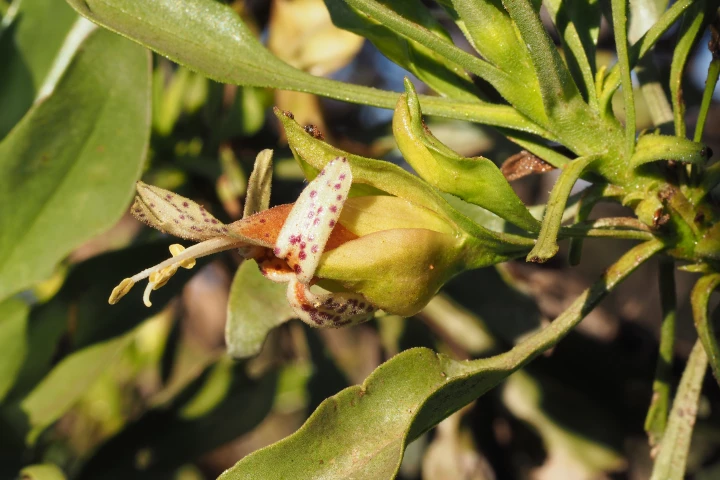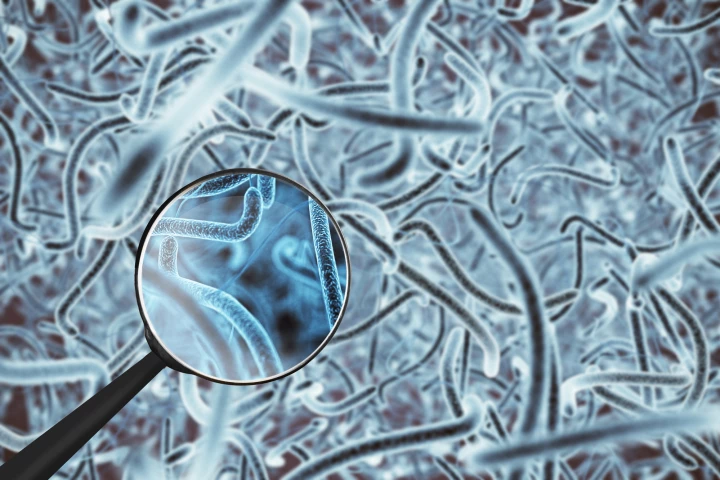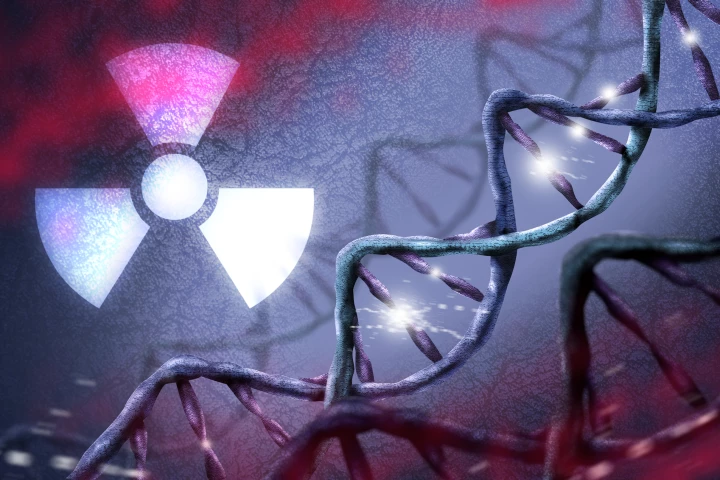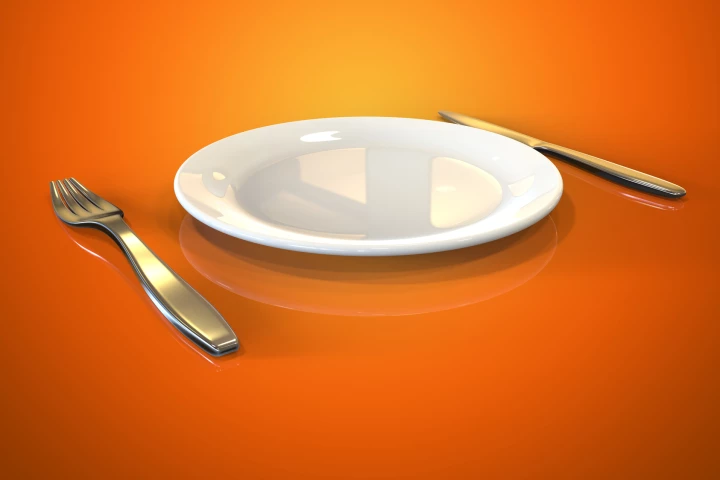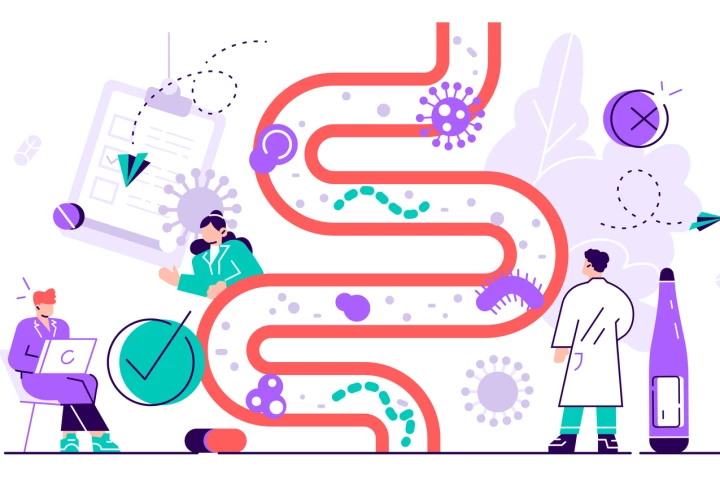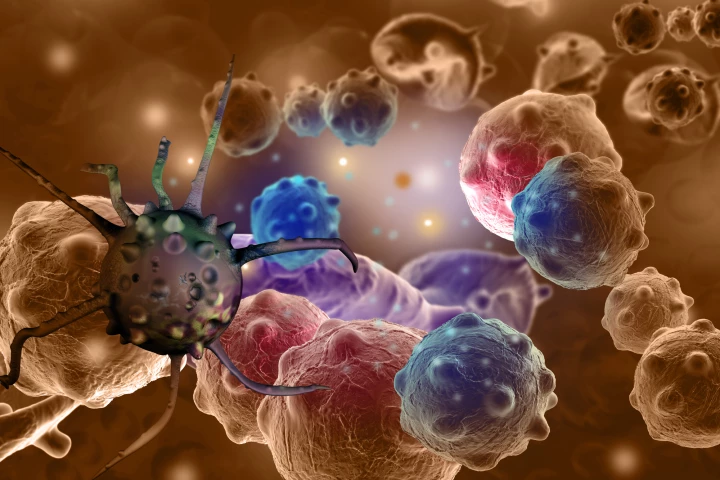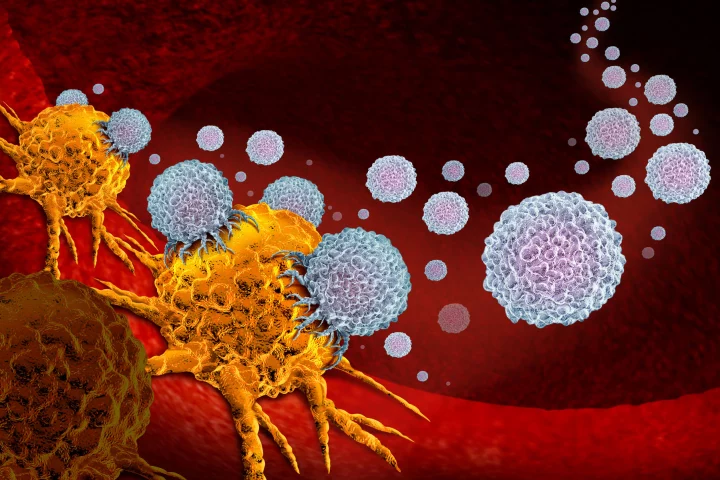Chemotherapy
-
Evidence shows fasting diets can enhance cancer treatment and a new mouse study has found adding a keto diet to chemotherapy tripled survival time compared to chemotherapy alone. A human clinical trial testing the combination treatment is now underway.
-
Researchers have isolated a compound from an Australian desert shrub with a long history of medicinal use by the Indigenous peoples of Australia that could help cancer patients better respond to chemotherapy.
-
Stem cell transplants to treat blood cancers can be a risky process. In a new study in mice, researchers found a way to make the process safer by targeting a patient’s faulty stem cells more precisely, removing the need for radiation or chemotherapy.
-
A new proof of concept study has demonstrated how certain types of protective gut bacteria can help negate the damaging side effects of toxic chemotherapy drugs, raising the prospect of future probiotics designed to enhance gut health in cancer patients.
-
Researchers at Yale University have shown how skin cancer could one day be treated with a simple injection. The team found that they could shrink tumors by injecting them with adhesive nanoparticles loaded with chemotherapy drugs.
-
A compelling study is suggesting all cancer cells may have the capacity to enter states of dormancy as a survival mechanism to avoid destruction from chemotherapy. And the mechanism these cells deploy notably resembles one used by hibernating animals.
-
A new study led by researchers from University College London suggests that combining traditional chemotherapy with an experimental therapy that uses magnetic nanoparticles to heat tumor cells could significantly enhance the efficacy of both treatments.
-
We know radiation therapy for cancer is an aggressively toxic treatment methodology. New research suggests certain gut bacteria species may protect an organism from the harmful effects of radiation, and human trials are planned to test these findings.
-
The results of a trial investigating fasting as an adjunct to chemotherapy have been published, finding the simple dietary intervention can improve the outcome of cancer chemotherapy and potentially reduce cellular damage associated with the therapy.
-
A new study has demonstrated the profound influence diet and gut bacteria have on the effectiveness and toxicity of drugs used in chemotherapy. The research concludes the complexity of drug, diet, and bacteria interactions in humans is “astronomical.”
-
The brain’s own defense mechanism often prevents treatment of brain cancers. But a new experimental treatment has shown success in mice, with carbon nanoparticles able to sneak through the blood-brain barrier and deliver drugs directly to tumors.
-
Doctors fight cancer with everything from radiation to chemicals to light-reactive particles, with mixed outcomes. Now, a new study has combined two approaches – chemotherapy and light therapy – into one drug, with promising results.
Load More

